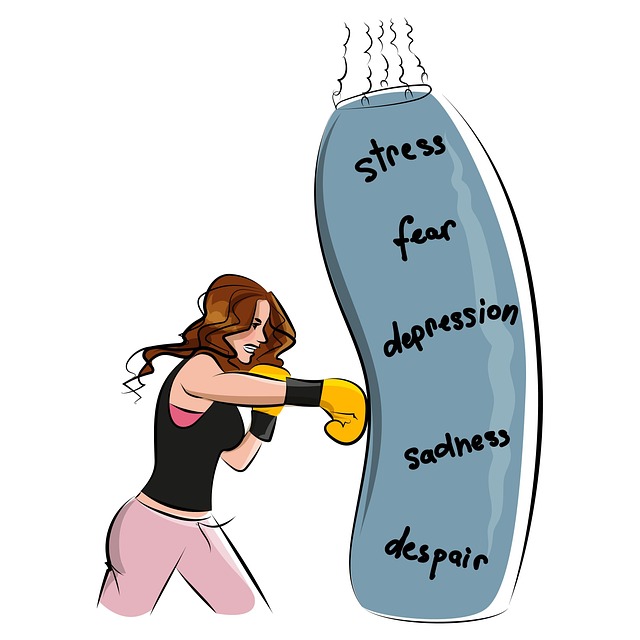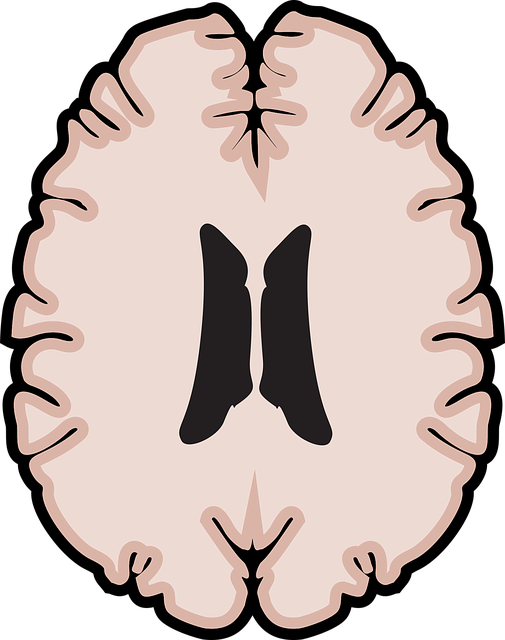Chronic stress negatively impacts physical and mental health, but Englewood Anxiety Therapy offers a holistic approach to management. They emphasize understanding root causes, adopting self-care practices like exercise and mindfulness meditation, and cultivating compassion for resilience. Their methods integrate cognitive-behavioral therapy (CBT), stress management tools, and emotional healing processes, empowering individuals to navigate challenges with control and lasting peace. CBT techniques, backed by research, challenge negative thought patterns, while mindfulness and meditation reduce stress and anxiety levels. Sustainable lifestyle changes, including regular exercise and balanced diets, significantly improve mental health and approach daily stressors calmly.
Stress reduction is an essential aspect of maintaining mental well-being. In this article, we explore various effective methods to combat stress and its detrimental effects on both mind and body. From understanding the root causes of stress to holistic approaches like Englewood Anxiety Therapy, we cover a range of techniques. Discover cognitive behavioral techniques, mindfulness practices, and lifestyle changes that can transform your stress management journey. Embrace these strategies for a calmer, more balanced life.
- Understanding Stress and Its Impact
- Englewood Anxiety Therapy: A Holistic Approach
- Cognitive Behavioral Techniques for Stress Management
- Mindfulness and Meditation Practices
- Lifestyle Changes for a Calmer You
Understanding Stress and Its Impact

Stress is a natural response to various life challenges, but when it becomes chronic, it can significantly impact our overall well-being. Englewood Anxiety Therapy highlights that prolonged stress may lead to both physical and mental health issues, affecting sleep patterns, energy levels, and even contributing to conditions like anxiety and depression. It can create a cycle where individuals feel overwhelmed, leading to avoidance behaviors or, conversely, relentless engagement in stressful situations without proper coping mechanisms.
Understanding the root causes of stress is essential for effective management. Engaging in self-care practices such as regular exercise, mindfulness meditation, and maintaining a balanced diet are proven strategies. Additionally, compassion cultivation practices can help individuals develop inner strength by fostering empathy and kindness towards oneself and others. By incorporating these techniques, one can navigate life’s challenges with resilience, ultimately reducing the impact of stress on their daily lives.
Englewood Anxiety Therapy: A Holistic Approach

Englewood Anxiety Therapy offers a holistic approach to stress reduction and anxiety management, focusing on the interconnectedness of mind, body, and spirit. This method acknowledges that anxiety often arises from a complex interplay of psychological, physiological, and environmental factors. Therefore, the therapy empowers individuals to address these multifaceted aspects through tailored strategies.
The process involves guiding clients through emotional healing processes, teaching them coping mechanisms for burnout prevention, and fostering compassion cultivation practices. By integrating various techniques such as mindfulness, cognitive-behavioral therapy, and stress management tools, Englewood Anxiety Therapy aims to help individuals regain control over their lives, enhance resilience, and achieve long-lasting peace amidst life’s challenges.
Cognitive Behavioral Techniques for Stress Management

Cognitive Behavioral Techniques (CBT) offer powerful tools for managing stress and anxiety. This evidence-based approach focuses on identifying and changing negative thought patterns and behaviors that contribute to stress. By challenging unhelpful thoughts and replacing them with more realistic and positive ones, CBT empowers individuals to better cope with stressful situations. For instance, a study by Englewood Anxiety Therapy highlights the effectiveness of CBT in reducing symptoms of anxiety and depression, showcasing its potential for improved mental wellness.
Community Outreach Program Implementation and Mental Wellness Coaching Programs Development can further enhance CBT’s impact. These initiatives promote accessibility to evidence-based practices, ensuring more people have access to effective stress reduction methods. Moreover, integrating CBT into such programs can aid in Burnout Prevention by providing individuals with the tools to manage daily stressors, enhancing overall resilience and well-being.
Mindfulness and Meditation Practices

Mindfulness and meditation practices have emerged as powerful tools in the arsenal against stress and anxiety, offered by even centers like Englewood Anxiety Therapy. By focusing on the present moment and cultivating a non-judgmental awareness of thoughts and sensations, individuals can find respite from the mental clutter that often contributes to feelings of overwhelm. Regular mindfulness exercises have been shown to reduce cortisol levels—the body’s primary stress hormone—and promote emotional well-being.
Incorporating these practices into one’s daily self-care routine development can significantly enhance stress reduction methods. Simple meditation techniques, such as mindful breathing or guided visualizations, are accessible and can be easily incorporated into even the busiest of schedules. The promotion of emotional well-being through mindfulness is a game-changer in managing everyday stressors, allowing individuals to develop resilience and a calmer mindset, regardless of life’s challenges.
Lifestyle Changes for a Calmer You

Making lifestyle changes can significantly reduce stress and anxiety levels. Simple adjustments like incorporating regular exercise, adopting a balanced diet, and prioritizing quality sleep can go a long way in calming your mind and body. Englewood Anxiety Therapy suggests practicing mindfulness techniques such as meditation or deep breathing exercises to enhance mental clarity and emotional well-being. By fostering empathy within yourself and others, you can build stronger connections and develop coping skills to navigate challenging situations with resilience.
Additionally, setting realistic goals and boundaries is crucial in stress management. Learning to say no when needed prevents burnout, especially for healthcare providers implementing effective burnout prevention strategies. These lifestyle shifts not only promote better mental health but also create a more balanced and fulfilling life, allowing you to approach daily stressors with a calmer mindset.
In conclusion, managing stress is a holistic journey that involves understanding its root causes, adopting effective techniques like cognitive behavioral therapy and mindfulness practices, and making positive lifestyle changes. The article has explored diverse strategies, highlighting the benefits of approaches such as Englewood Anxiety Therapy in fostering mental well-being. By integrating these methods into daily routines, individuals can navigate life’s challenges with resilience, ultimately achieving a calmer and more balanced state.









